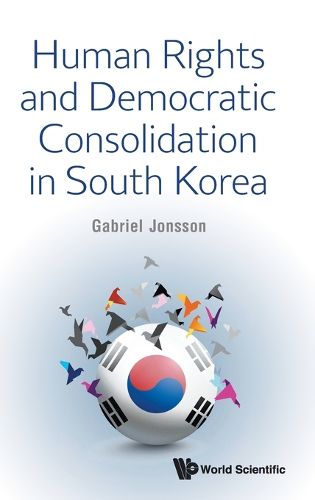Readings Newsletter
Become a Readings Member to make your shopping experience even easier.
Sign in or sign up for free!
You’re not far away from qualifying for FREE standard shipping within Australia
You’ve qualified for FREE standard shipping within Australia
The cart is loading…






This title is printed to order. This book may have been self-published. If so, we cannot guarantee the quality of the content. In the main most books will have gone through the editing process however some may not. We therefore suggest that you be aware of this before ordering this book. If in doubt check either the author or publisher’s details as we are unable to accept any returns unless they are faulty. Please contact us if you have any questions.
Has South Korea accomplished democratic consolidation since the Constitution was revised in 1987? Whereas political freedom has improved, the NSL is generally pointed out as the main obstacle to full freedom but it is not the only one to guarantee respect for human rights. Since full respect for human rights is not guaranteed, democratic consolidation has not been achieved. This book analyzes the issue based on the state of human rights that are an important part of democracy. The starting points are the 1948 UN Universal Declaration of Human Rights, the 1987 South Korean Constitution and the 2001 National Human Rights Commission (NHRC) Act which are empirically tested. Definitions of democratic consolidation are applied. The study first investiga- tes legislation and human rights institutions, including the National Security Law (NSL), the Con-stitutional Court, the NHRC, adherence to international human rights law and the Universal Periodic Review. Then the impact of inter-Korean relations on human rights are reviewed based on the NSL, dispatches of leaflets across the border and conscientious objectors. Finally, freedom of expression, assembly and association, including the state of sexual minorities, trials of ex-presidents, death penalty, human trafficking and torture are studied.
$9.00 standard shipping within Australia
FREE standard shipping within Australia for orders over $100.00
Express & International shipping calculated at checkout
This title is printed to order. This book may have been self-published. If so, we cannot guarantee the quality of the content. In the main most books will have gone through the editing process however some may not. We therefore suggest that you be aware of this before ordering this book. If in doubt check either the author or publisher’s details as we are unable to accept any returns unless they are faulty. Please contact us if you have any questions.
Has South Korea accomplished democratic consolidation since the Constitution was revised in 1987? Whereas political freedom has improved, the NSL is generally pointed out as the main obstacle to full freedom but it is not the only one to guarantee respect for human rights. Since full respect for human rights is not guaranteed, democratic consolidation has not been achieved. This book analyzes the issue based on the state of human rights that are an important part of democracy. The starting points are the 1948 UN Universal Declaration of Human Rights, the 1987 South Korean Constitution and the 2001 National Human Rights Commission (NHRC) Act which are empirically tested. Definitions of democratic consolidation are applied. The study first investiga- tes legislation and human rights institutions, including the National Security Law (NSL), the Con-stitutional Court, the NHRC, adherence to international human rights law and the Universal Periodic Review. Then the impact of inter-Korean relations on human rights are reviewed based on the NSL, dispatches of leaflets across the border and conscientious objectors. Finally, freedom of expression, assembly and association, including the state of sexual minorities, trials of ex-presidents, death penalty, human trafficking and torture are studied.